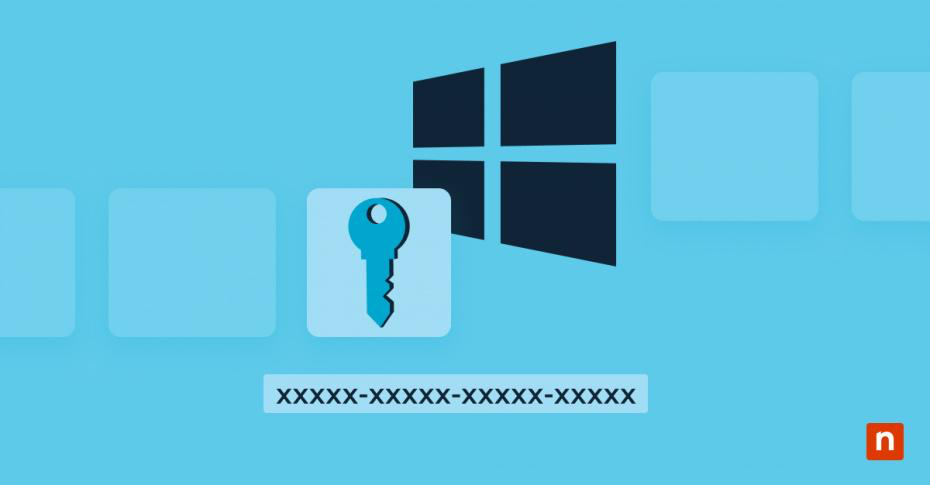Windows 11 is Microsoft’s latest operating system, offering new designs, better security, and improved performance. But one area that still causes confusion for many users is the difference between an activation key and a license key. People often think these two terms mean the same thing, but they actually serve different purposes. In this article, we will break down what an activation key is, what a license key means, and how both are used in Windows 11. We will also look at why you need them, where to get them, and what can happen if you don’t have the right one.
Why Windows 11 Needs Keys
Windows is not free software. Microsoft requires users to prove that their copy of Windows is genuine and legally purchased. That’s where activation and license keys come in. These keys are codes that confirm your version of Windows 11 is valid and that you have the right to use it.
While both keys are important, they are not the same. Think of it this way: one key proves you are allowed to use Windows, while the other actually activates your system.
What Is a Windows 11 Activation Key?
An activation key is a 25-character code (usually letters and numbers) that is used to activate Windows. Without this key, your operating system will run in a limited mode. You might see a message on the desktop saying “Activate Windows,” and some features, like personalization settings, won’t be available.
How It Works
When you enter the activation key, Windows checks with Microsoft’s servers to verify if the code is valid. If the key is genuine, the system gets activated, and you gain full access to all features.
Example of a Key
A Windows 11 activation key looks something like this:
XXXXX-XXXXX-XXXXX-XXXXX-XXXXX
Of course, each code is unique and tied to either a specific device or purchase.
What Is a Windows 11 License Key?
A license key is a digital certificate that confirms you have purchased the legal right to use Windows 11. It is different from the activation key because it proves ownership, not just activation.
How It Works
The license key is often linked to your Microsoft account or hardware. Once you buy a license, you can use it to activate Windows with an activation key. In other words, the license is the legal right, while the activation key is the technical code you use to apply that right.
Types of Licenses
Key Differences Between Activation Key and License Key
Let’s put the differences side by side for easier understanding:
|
Feature |
Activation Key |
License Key |
|
Purpose |
Activates Windows 11 on your PC |
Proves your right to use Windows legally |
|
Format |
25-character code |
Digital certificate or proof of purchase |
|
Tied To |
Microsoft servers and your hardware |
Your purchase (retail, OEM, or volume) |
|
Without It |
Limited access, watermark, missing features |
Windows may activate but still be considered unlicensed |
Why Both Keys Matter
Some people wonder why Microsoft doesn’t just stick with one key. The answer lies in the difference between technical use and legal ownership.
Without an activation key, Windows won’t give you all the features. Without a license, you could end up with a system that is considered pirated, even if it works at first.
Where to Find Your Windows 11 Keys
Finding your Windows 11 keys is important for activation and licensing. These keys can usually be located in purchase records, Microsoft accounts, or device packaging.
Activation Key Locations
License Key Locations
What Happens If You Don’t Activate Windows 11?
If you don’t use an activation key, Windows 11 will still run, but with restrictions:
Over time, this can become frustrating and also risky for security.
How to Check If Your Windows 11 Is Activated
To check your system:
Free vs. Paid Keys: The Risks
Some websites or sellers may offer “free” or cheap activation keys. While tempting, these often come with risks:
It’s always best to buy keys directly from Microsoft or trusted sellers.
Activation Key Problems and Fixes
Sometimes activation doesn’t work right away. Common issues include:
How to Fix
License Key Problems and Fixes
Tips for Managing Windows 11 Keys
FAQs
1. Can I use Windows 11 without an activation key?
Yes, but you will face limits like a desktop watermark, fewer personalization options, and possible lack of updates.
2. Are activation keys and license keys the same?
No. An activation key unlocks the system’s features, while a license key proves your legal right to use Windows.
3. Can I transfer my license to another PC?
If it’s a retail license, yes. OEM licenses that come with pre-installed Windows usually cannot be transferred.
4. What if I lose my key?
Check your Microsoft account or email receipts. If you still can’t find it, contact Microsoft support.
Conclusion
Understanding the difference between a Windows 11 activation key and a license key is important for anyone using the operating system. The activation key makes your Windows copy fully usable, while the license key is your legal proof of ownership. Both go hand in hand to give you a secure and complete Windows experience. To avoid problems, always purchase your keys from trusted sources, link them to your Microsoft account, and keep records of your purchase. By doing so, you’ll have peace of mind knowing your Windows 11 is both activated and legally licensed.























